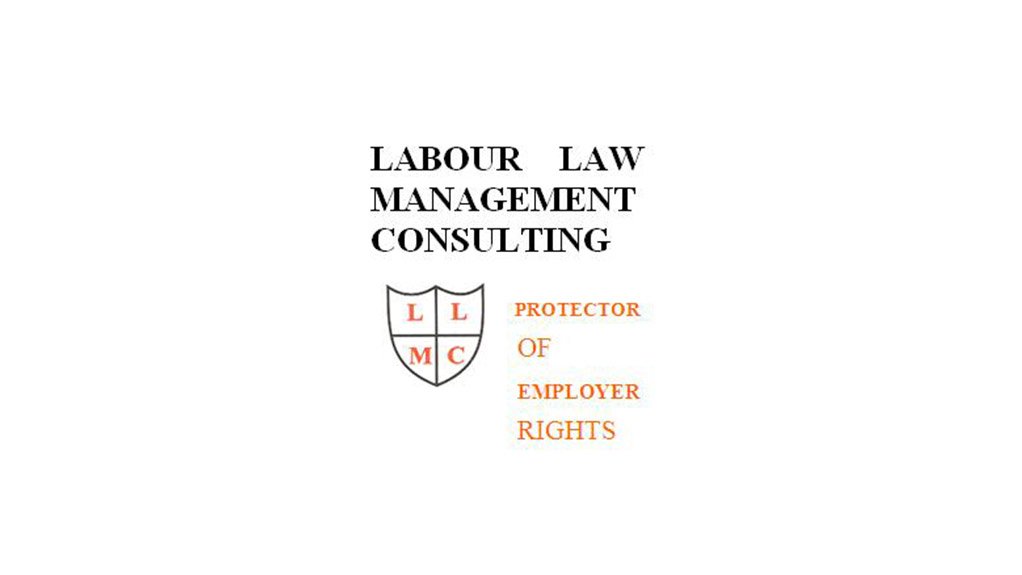South African law is full of legal terminology, much of which is difficult for lay people to understand. While each statute contains a set of definitions to aid the understanding of the reader, these definitions seldom cover all the terminology used in the relevant piece of legislation.
One of the biggest culprits in this regard is the labour law statutes. It is my view that the dearth of clarity of the meaning of labour law terms results from the inability of the NEDLAC parties to agree to aspects (including definitions) of the labour law statutes. It was therefore left to the courts to deal with all the missing definitions.
As a result, it would be folly for employers to rely solely on the few definitions that the statutes provide or on their own ‘logical’ interpretation of terms.
One example of the many contentious labour law terms is “commencement of disciplinary hearing”. That is, does a disciplinary hearing commence when the employee is served with the charges, when the hearing notification of the hearing has been received or when the hearing actually sits and the charging officer reads out the allegations? This question becomes relevant particularly in circumstances where employers have rules that provide procedural deadlines. Examples of such rules include, “The hearing must commence within 30 days of the date of the alleged infraction” or “The hearing must commence within 3 months of the date of the employee’s suspension.”
A case in point is that of Tshabalala vs Moqkaka Local Municipality (Lex Info 28 November 2024, Labour Appeal Court case number JA88/2024). In that case the municipal manager was suspended on 1 March 2024. The employer’s rules for senior employees required the disciplinary hearing to commence within 3 months of the employee’s suspension date, otherwise the suspension automatically expires. On 3 June the employee reported for work stating that the 3-month suspension had expired at the end of May.
The employer argued that the hearing had started before the expiry of the suspension period because it had commenced the hearing by serving the employee the hearing notice on 31 May. A dispute then arose as to what constituted the commencement of the hearing.
The Labour Court found in favour of the employer’s definition that the hearing had legally commenced on 31 May because the hearing notice had been served on the employee on 31 May. The court based its decision on the finding in the earlier Labour Court decision in Mngengo vs Lekwa Teemane Local Municipality.
On appeal the Labour Appeal Court disagreed with the Labour Court. It found that the Moqkaka Local Municipality’s own rules indicated that “commence” in the context of a disciplinary hearing meant the date on which the parties first sat for the case to be heard. It also said that there was a difference between disciplinary proceedings and a disciplinary hearing. The court therefore ordered the employer to reinstate the employee and to pay the employee’s legal costs.
This outcome highlights the need for employers to understand all legal terms relating to the workplace and to ensure that their own rules and definitions are correctly implemented.
The innovative video series WALKING THE LABOUR LAW TIGHTROPE assists employers to provide their managers with very inexpensive training that allows the managers to achieve the necessary knowhow at times suitable to their very busy schedules. Its 48 chapters, averaging 10 minutes in length each, can easily be watched at junctures when the manager has time. This greatly informative yet very engaging and practical video series provides crucial and user-friendly learning through the use of a stimulating, animated case study that runs throughout the 48-chapter series. Each chapter contains clear and important advice needed by workplace management on the basics of labour law over a very wide range of topics.
A further advantage is that the manager can, for a full year, easily go back to any of the 48 videos for purposes of refresher training or in order to access information on how to deal with a current workplace issue. This solves the problem of managers forgetting what they have learned.
This video series helps management to walk the shaky labour law tightrope and to run the workplace productively without falling into the labour law abyss.
To access our groundbreaking video series: WALKING THE NEW LABOUR LAW TIGHTROPE please go to www.labourlawvideos.co.za or contact Ivan on ivan@labourlawadvice.co.za
Written by Ivan Israelstam, Chief Executive of Labour Law Management Consulting. He may be contacted on (011) 888-7944 or 0828522973 or on e-mail address: ivan@labourlawadvice.co.za. Go to: www.labourlawadvice.co.za
EMAIL THIS ARTICLE SAVE THIS ARTICLE ARTICLE ENQUIRY
To subscribe email subscriptions@creamermedia.co.za or click here
To advertise email advertising@creamermedia.co.za or click here











